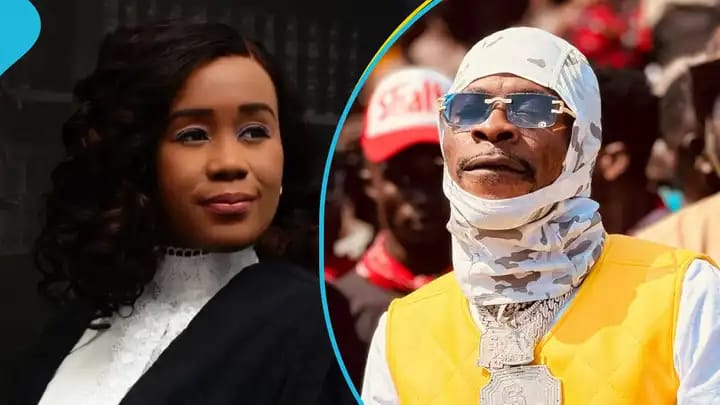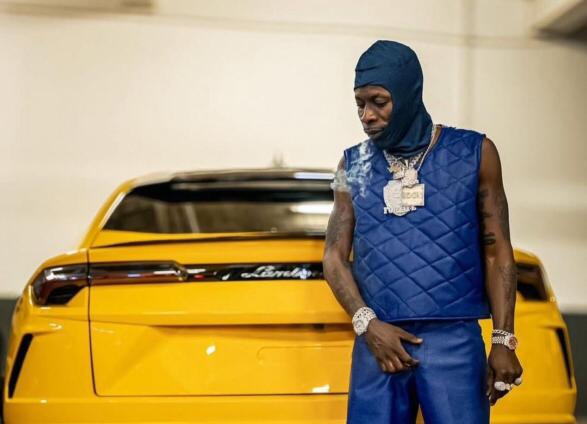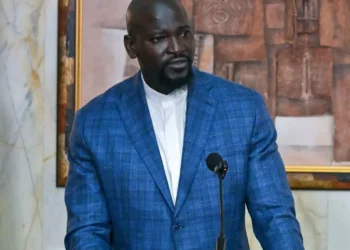Constitutional lawyer, Raymond Bidema, has strongly asserted that Dancehall artiste, Shatta Wale, has no legitimate excuse to justify his alleged purchase of the stolen Lamborghini Urus.
Mr. Bidema urged celebrities and public figures like Shatta Wale to exercise due diligence when making high-value purchases.
“It is not a sufficient defence, in my opinion, because the circumstances surrounding the purchase of the car are quite problematic. The price at which the vehicle was sold is not comparable to something like kelewele that one might casually buy from a roadside vendor.”
Raymond Bidema
He stated that the matter raises serious legal red flags: “These are the kinds of issues that a court or an investigative body would carefully examine to determine whether the buyer may have had prior knowledge or played a role in suspicious activity.”
“First of all, the car was reportedly purchased above typical market value, which is, in itself, a red flag. Secondly, the buyer doesn’t even know the identity of the seller, nor is there any receipt or documentation to support the transaction. This is not a minor item purchased for 100 cedis; it is a car worth $150,000.”
Raymond Bidema
Bidema went on to caution that making such a high-value purchase without proper verification or documentation should raise concerns for any reasonable person.
“When purchasing a vehicle, standard procedure requires documentation: registration papers, transfer of ownership, and so on. Was the seller in possession of these documents? If so, under whose name were they registered? If there was no paperwork at all, that could suggest the car was unlawfully acquired, and the buyer may be held liable for taking possession of a potentially stolen vehicle.”
Raymond Bidema
The legal expert concluded by urging influential personalities to lead by example and avoid reckless behavior that could encourage illicit transactions.
Amanda Clinton Calls Shatta Wale’s Defense Weak

The legal defence of popular Ghanaian dancehall artist Shatta Wale in the ongoing Lamborghini saga is “extremely weak”, Head of Chambers at Clinton Consultancy, Amanda Clinton, said.
Commenting on the development, international lawyer Ms Clinton dissected the complexities of the case, highlighting the significant legal hurdles the musician faces and the crucial role of documentation in proving his innocence.
The case centres on a yellow 2019 Lamborghini Urus, which the Economic and Organised Crime Office (EOCO) seized at the request of the U.S. Department of Justice.
The luxury vehicle has been flagged in a U.S. restitution order as a “substitute asset” to recover funds from a US$4 million fraud case involving convicted Ghanaian national Nana Kwabena Amuah.
While EOCO has not yet formally charged Shatta Wale, the focus of the investigation is on potential tax evasion, money laundering, and his claim that he purchased the car from “the street.”
Shatta Wale’s claim that he is an “innocent purchaser”—meaning he bought the car in good faith and did not know its criminal origins—is at the heart of his defence.

However, as Amanda Clinton explained, this defence lacks crucial evidence.
“By saying he bought the car ‘on the street’—possibly from someone called ‘Zak’—Shatta Wale is essentially asserting an innocent purchaser defence,” Ms Clinton said. “But without credible documentation—receipt, registration, customs forms, proof of payment—that defence is extremely weak.”
The only document the artist has produced so far is a customs form that bears the name of Nana Kwabena Amuah, the very individual at the centre of the fraud case.
This, according to Ms Clinton, does little to support his claim of legitimate ownership.
Ms Clinton believes that without strong documentation, Ghana’s courts are unlikely to accept the “street purchase” story.
“Realistically, unless he produces solid documentation proving legitimate acquisition—bank statements, bills of sale, customs receipts—Ghana’s courts are unlikely to accept the ‘street purchase’ story.”
Amanda Clinton
Ms Clinton clarified the legal process, noting that EOCO’s role is not to simply hand over the vehicle to U.S. authorities.
Under Ghana’s sovereignty, EOCO must apply to a Ghanaian High Court to recognise and enforce the U.S. forfeiture order.
The court will consider several factors, including the authenticity of the U.S. order, whether the car falls under Ghana’s proceeds of crime laws, and critically, whether Shatta Wale can prove he is a valid, innocent purchaser, she explained.
The case, Amanda Clinton concluded, is a significant test of Ghana’s commitment to international justice and cooperation on cross-border financial crime. The outcome will likely depend on Shatta Wale’s ability to provide credible proof of ownership.
READ ALSO: Binduri MP Confident in IGP’s Akwatia Plans, Calls for Military Fleet Renewal



















